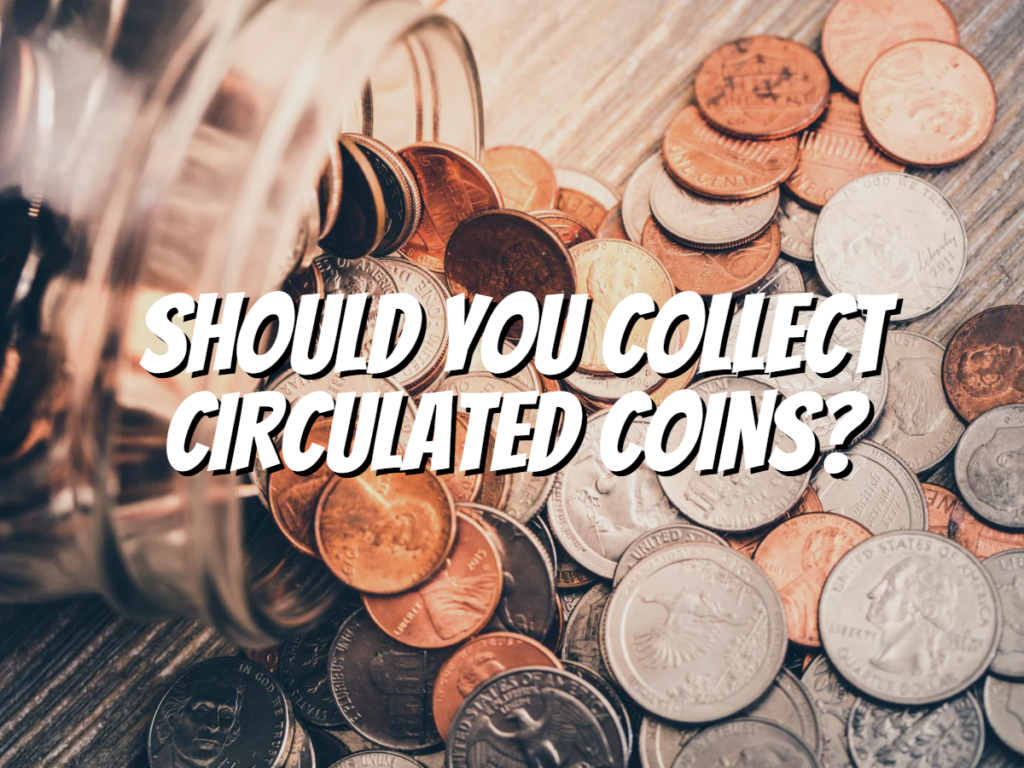Collecting coins is a fun hobby that can help you learn more about your country’s history.
But if you’re new to collecting and want to jump right in, I have good news: circulated coins are the perfect place to start!
But what are circulated coins? This article will discuss circulated coins and whether they are worth collecting.
What are Circulated Coins?

Circulated coins are used to refer to coins that have been in circulation.
A circulated coin has been used in transactions and has come into contact with other money, such as paper bills.
It’s important to note that circulated coins aren’t necessarily old—they could have only been used once or twice before being put back into circulation for another transaction.
As far as collectible coins go, these tend to be considered lower quality because they’re more likely than uncirculated or proof coins (which we’ll get into later) to have scuffs and scratches from being handled by the public.
Still, some collectors love collecting these because of their history; if you’re interested in collecting them, check out our guide below!
Should You Collect Circulated Coins?
The information in this article will help you decide if collecting circulated coins is right for you.
Collecting circulated coins is an excellent way to teach kids about money and how it can be used to buy things they want or need.
It also gives them an understanding of how much work goes into making money, which can help them appreciate what they have.
Another advantage of collecting circulated coins is that it’s fairly inexpensive compared to other coin-collecting activities, such as buying uncirculated (brand new) collectible coins or rare gold bullion pieces.
Another benefit of collecting circulated coins is that many different types are available today!
If someone wants something specific like, say, 2000-P Sacagawea Dollars, then there are plenty available from various sellers around the world who sell at affordable prices too.
However, there are always limited supply shortages due to significant demand, which drives up the cost per unit sold – but only temporarily until supply catches up again since demand decreases over time too.
Advantages of Collecting Circulated Coins

Collecting circulated coins offers many advantages over collecting uncirculated coins.
The most obvious advantage is that you can buy more coins for your money.
In most cases, you can purchase one bag of circulated coins for about the same price as one coin in a mint-sealed slab.
Another significant advantage of collecting circulated coins is the variety you’ll get compared to buying mint-sealed slabs.
You’re not limited to only getting two or three new pieces yearly; instead, you can buy thousands of varieties each month because they’re all relatively cheap!
Of course, the average person may need help finding time or interest in hunting down rare items among all those circulating pieces.
Still, if these are available at your local bank, then there’s no reason not to try them!
Finally, being able to collect recent years’ issues has its distinct advantages too.
It allows you to include them in your collection without breaking any rules about how long ago something must be made before selling it off.
Plus, it gives collectors who aren’t interested in older issues (or who don’t want such costly items) an option which involves less risk than buying certified “slabbed” coins (which tend
Disadvantages of Collecting Circulated Coins
- Some coins are worth more when they’re uncirculated or in mint condition. For example, a penny that human hands haven’t touched since 1932 could be worth $1 million because of its rarity.
- Circulated coins can be damaged easily, especially if you don’t take care of them properly. If you keep them in your pocket or purse with other change and keys, they may get scratched or bent out of shape.
- Coins in circulation for years can also have a ton of dirt on them—even if they’ve never been used to buy something! If you don’t wash them off before handling them, bacteria from your hands can build up on your collection over time, making it less valuable as a collector’s item (and more likely to give someone else cooties).
Tips for Collecting Circulated Coins

Be careful when collecting coins in circulation. While it’s tempting to grab every coin you see, remember that the value of your collection has a lot to do with condition.
If the coins you collect are damaged, they won’t be worth as much.
It’s best if you only collect coins still in circulation and good condition to retain their value should you decide to sell them later on down the line (and remember: always research before buying anything).
Keep an eye out for rare coins and those with low mintage—these will give your collection an extra value boost!
Before you go…
As you can see, collecting circulated coins has both pros and cons. We hope this article has helped you decide if it might interest you and how to get started!
Check out my next article: “A Comparison of Circulated vs. Uncirculated Coins.”
Related Articles:

